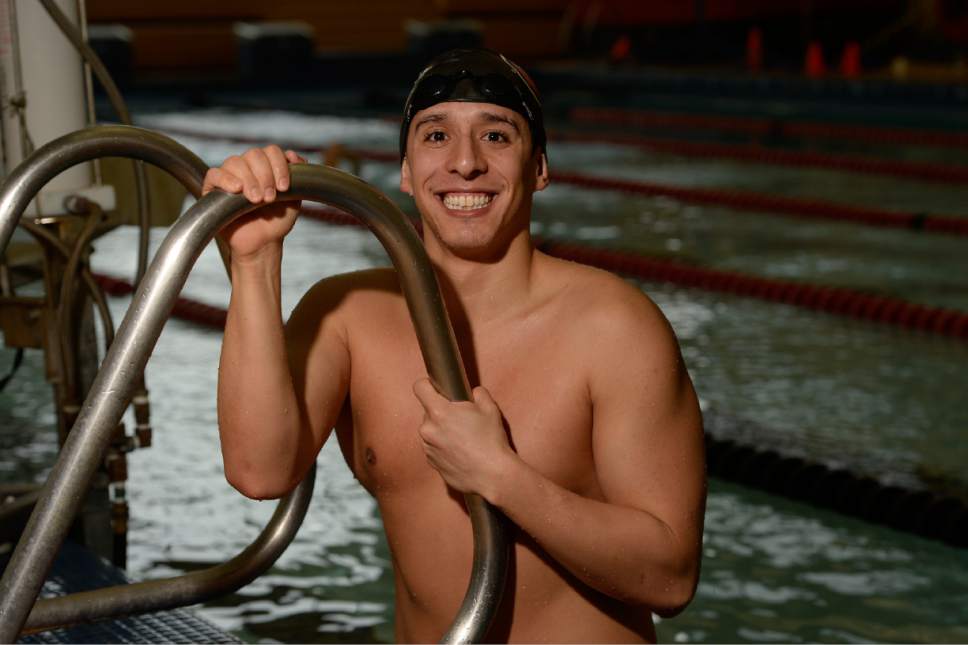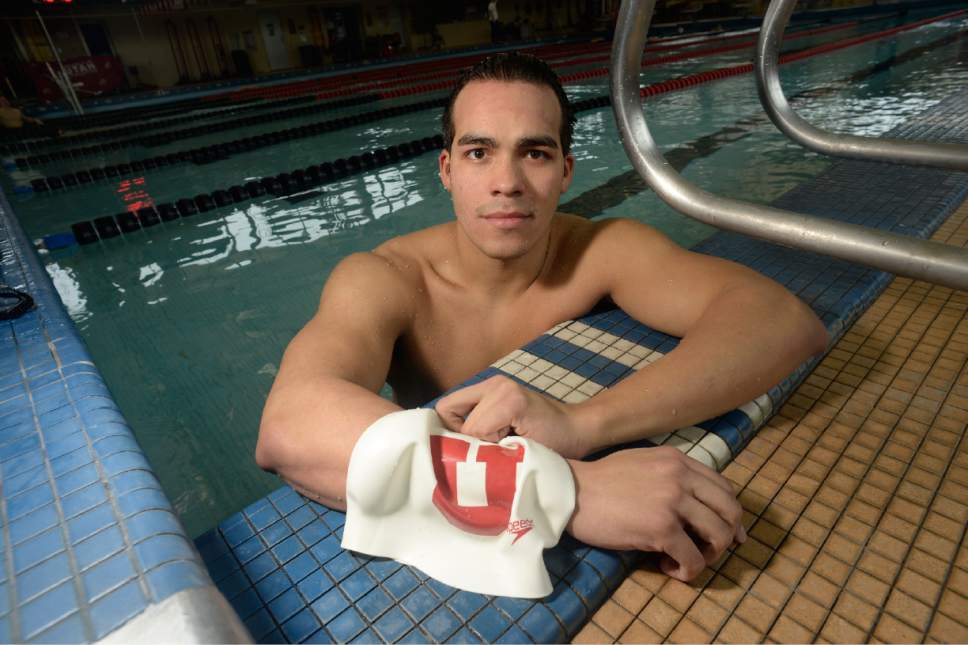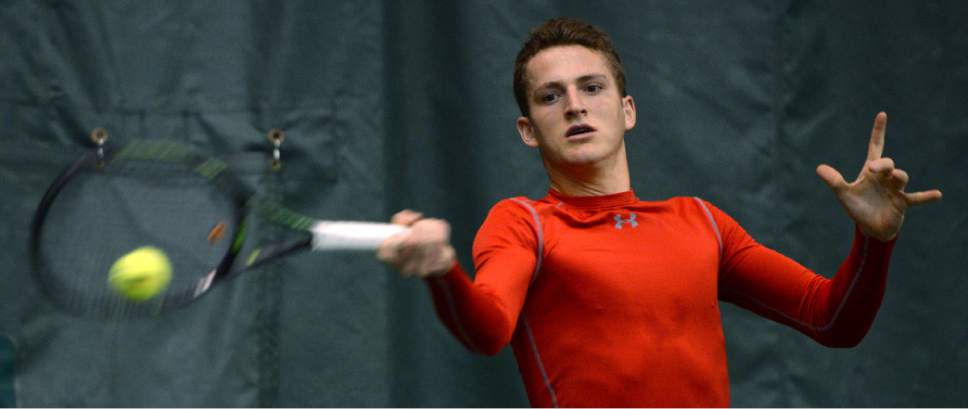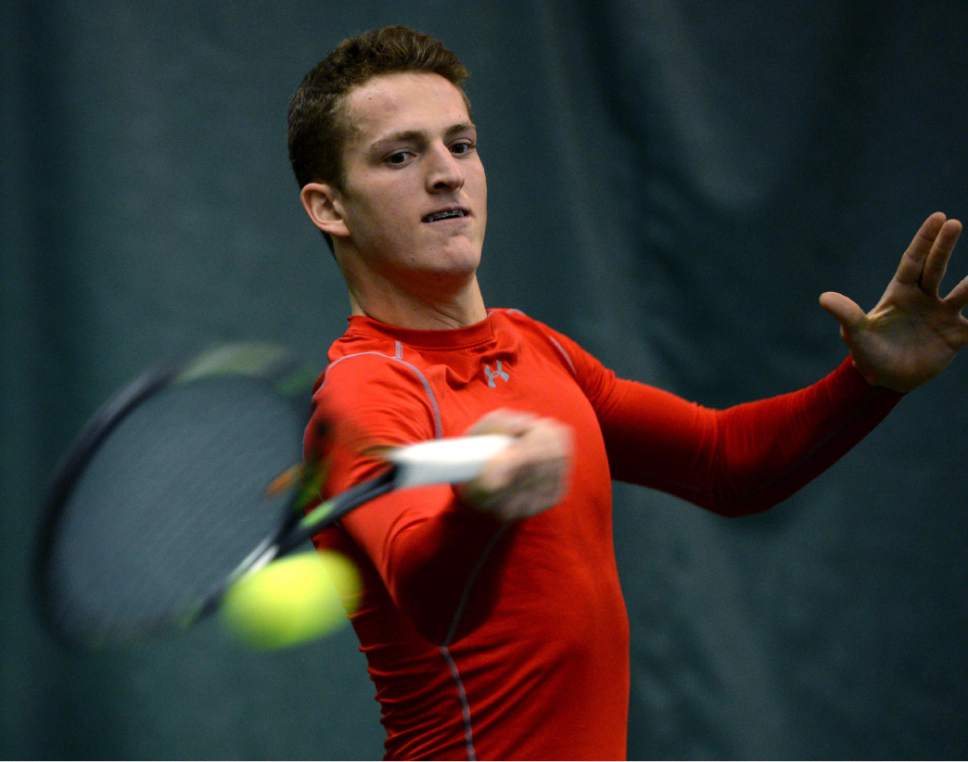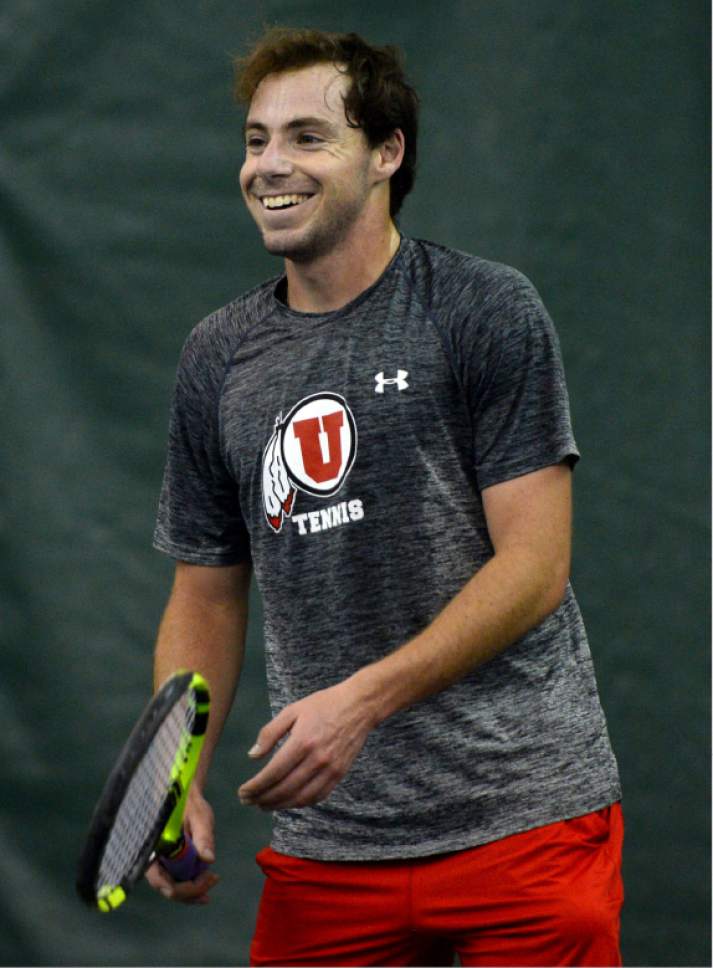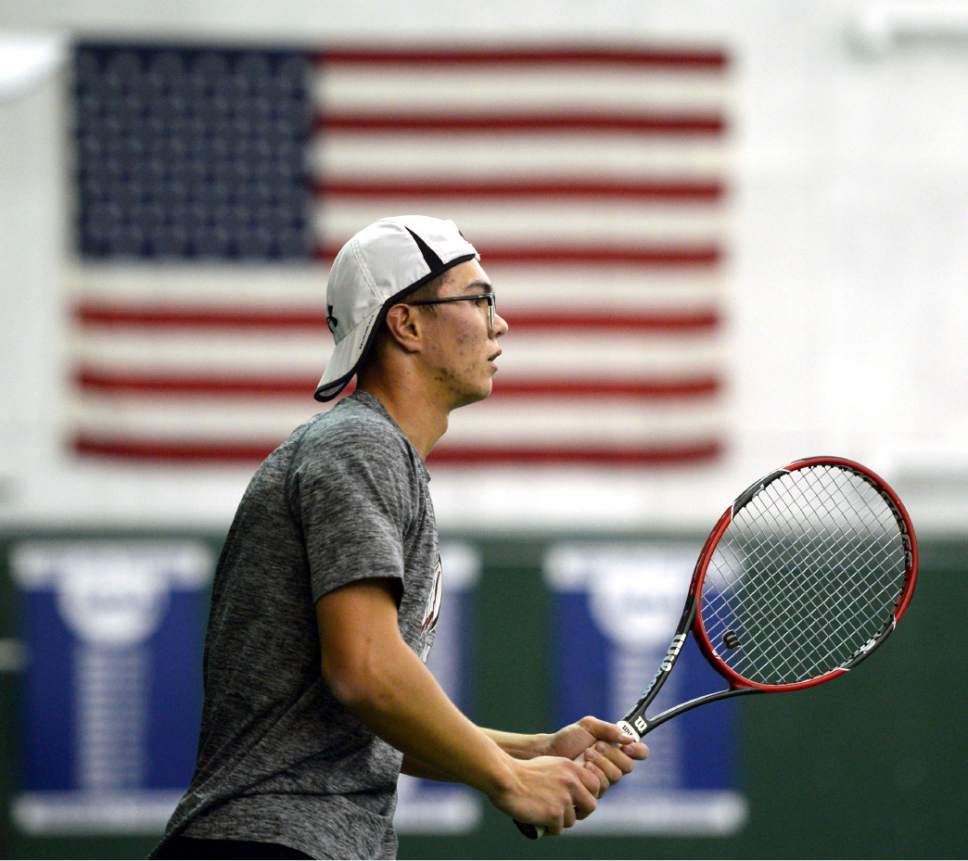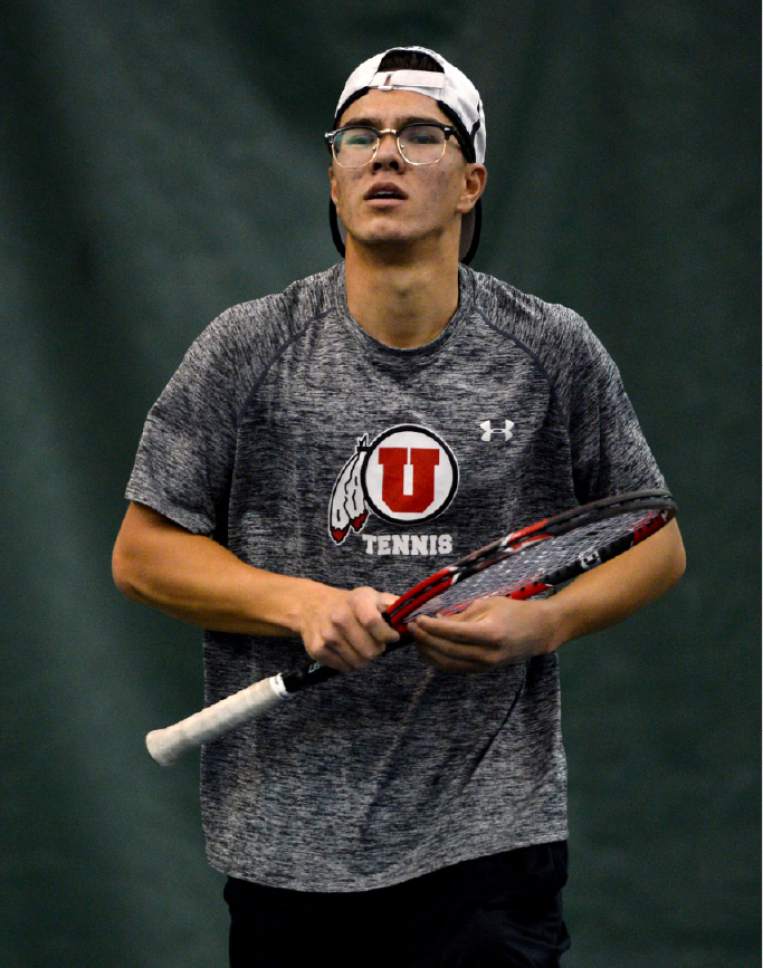This is an archived article that was published on sltrib.com in 2017, and information in the article may be outdated. It is provided only for personal research purposes and may not be reprinted.
He filed the paperwork two weeks ago.
In many ways, the United States is home for Azat Hankuliyev. He's lived in Utah for a decade, and it's where he went to high school, met his girlfriend and got a scholarship offer to play tennis for the Utes.
But Hankuliyev is applying for U.S. citizenship now, not just because this country is his home, but because he worries his green card might not ensure that he gets to stay here.
"It kind of feels threatening a little bit," he said. "I have the right to be concerned about where this is going. My girlfriend sent me the paperwork, and she told me that I can't put it off any more."
The 19-year-old freshman tennis player for the Utes was born in Turkmenistan, a Muslim-majority nation that shares a border with Iran. He's Muslim (although he says he's not very active in the faith) and has been wondering what that could mean for his future in the U.S. since President Donald Trump signed an executive order that restricts travel from seven other countries where Islam is the dominant religion.
Hankuliyev is one of hundreds of international students at the University of Utah, and one of dozens of NCAA athletes who have seized the exceptional opportunity to both study and compete in the United States. Particularly since the Utes joined the Pac-12 Conference, more athletes from beyond U.S. borders have come to suit up for Utah athletics: Of Utah's 17 sanctioned sports, 12 have at least one foreign national. On three teams, including men's tennis, American citizens are a minority.
While the constant churn of schoolwork, training and competition can create a "bubble" between student athletes and the rest of the world, the political shifting within the U.S. in recent months has raised the anxiety of several Utah athletes. While none are from the countries affected by the travel ban, many are from countries affected by the political rhetoric that has caused them to question what future they have in the United States.
—
Future uncertainty • For some like Luis Macias, a senior finance major from Mexico who is one of Utah swimming's butterfly specialists, that future is approaching quickly. Macias' student visa expires in May, but he needs to complete three more classes for his degree.
Macias is hoping to work for an American company following graduation, and then use that experience to return to Mexico to build a business there. But finding work requires finishing his degree. He has to return to Mexico to renew his visa for his last semester, but a flood of executive orders from the White House makes Macias uneasy about how stringent that process will be.
"What if I go to Mexico to renew my visa, and suddenly, they are going to block the visas from Mexico?" he said. "What am I going to do then? I need to finish my school."
—
Travel concerns • There's also concern for international athletes that they won't be able to visit their families, or visa versa. After the travel ban, the university offered advice to students from the seven affected countries not to travel abroad, and even students who don't originate from those countries question if they should leave.
Fernando Cervantes, a sophomore sprinting swimmer from Guadalajara, Mexico, has heard from his family back home how the Mexican economy is suffering. The value of the peso dropped after the Trump administration offered the idea of placing tariffs on Mexican exports to the United States, and that has hurt both of his father's businesses — an accounting firm and a medical supplies vendor.
"It could become harder for my parents or brothers to apply for visas here, so I'm kind of alone," Cervantes said. "I usually go back summer or Christmas break. I don't know if I will go back this summer."
While national security has been touted as the main motivation for the travel ban, international students have a way of seeing the world in different terms. Dorien Butter, a 20-year-old junior swimmer, is a Dutch national who has spent most of her life hopping around the globe: She was born in Oman and has since lived in Norway, the United Arab Emirates, Russia and Tunisia.
Butter spent her high school years in Cairo, Egypt, during the height of the Arab Spring. An Arabic minor who speaks fluent English with an American accent, she gets the same question often when she tells people she's visiting the Middle East: "Are you sure it's safe?"
"I do my best to try and tell people that it's essentially like every other country, every other big city — you've got to be cautious," Butter said. "You just have to be aware. But the same stuff happens in Europe, or even the U.S."
Butter recently returned to Egypt to visit friends. On her return trip to the U.S., she got more scrutiny from customs than before when they saw the stamps on her passport from a number of Arab countries.
—
Differing view • Not every international athlete is hearing panic from back home: Freshman tennis player Slava Shainyan, 18, has heard only positive feedback from his parents in his native Moscow since Trump's election. The predominant feeling he gets from his family is that Russians hope that two world superpowers will be allies, leading to peace and prosperity for both.
Shainyan understands his family's enthusiasm for the new direction in American politics, but he also understands the anxiety felt by others he knows — like his Mexican doubles partner Santiago Sierra. Shainyan has spent the last two years in California before coming to Utah this year, and said he was struck by the discord in the U.S. when he saw a protest at an airport while the team was traveling.
"I don't just take everything my dad says and only see the one side," he said. "I see both sides. I try to be neutral."
—
Support from the U. • All the athletes who spoke to The Tribune said they feel safe at the University of Utah and cared for within the athletics department. Most couldn't attend the U.'s meeting last month due to sports commitments, but they get emails from the International Student and Scholars Services office that keeps them up to date on new guidelines and developments. The support of the university, they said, has been calming in uncertain times.
Athletic director Chris Hill said the ISSS and Utah's compliance department handle most visa and eligibility issues for international students moreso than the athletics department itself, but the Utes envision international students as a core piece of their success and experience.
"We want them to grow and develop in every way just as we do with domestic students," Hill said. "We want them to learn cultural differences from all different parts of the country and the world and get a great education. It's a give and take between all athletes. Diversity is a huge part of our department."
—
Hope for what comes next • Sierra, 21, said he wouldn't have been able to play tennis at a high level and get a quality education back in his native Mexico City — he would've had to choose. The NCAA system is unique among the world for its ability to provide both, which is a huge international draw.
While Sierra said he doesn't have too much time to get emotionally invested in American politics, he does worry that harder American borders will discourage some of his countrymen from pursuing the same path he did.
"Mexicans who come to the U.S. come here to find better opportunities for them and their families," he said. "You come here to work as hard as you can but also contribute something to that society."
Sierra's most recent contribution was a win over BYU on Thursday night, as he and Shainyan won their doubles match in Provo.
There should be more wins for the international students who wear the crimson with pride. But they hope it lasts — that they soon find certainty in an uncertain time.
For Hankuliyev, that could be in six months to two years: the length of time it takes to become a citizen. If he had to go back to his native country, he could be drafted into military service, so he's not planning to visit for a while.
His mother, however, is going back to Turkmenistan in a month. He hopes she'll be able to return when she's ready: There's matches coming up in the spring.
Twitter: @kylegoon —
U. athletics have strong international flavor
• Of Utah's 17 sanctioned sports, 12 have at least one foreign national
• Three sports — men's and women's skiing and men's tennis — have majority international rosters
• No Utes listed on official rosters hail from countries affected by executive order on travel restrictions
• Most international athletes are on F-1 student visas


